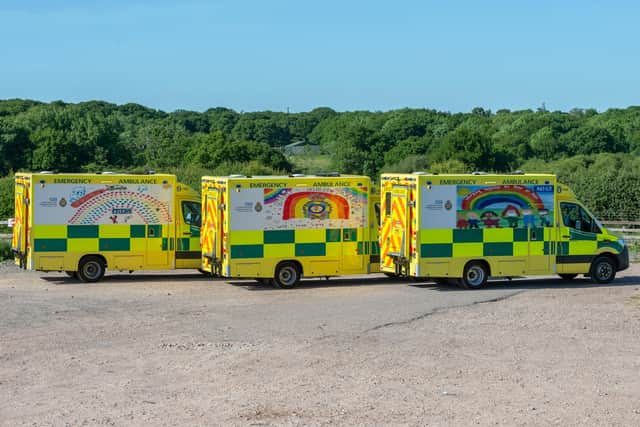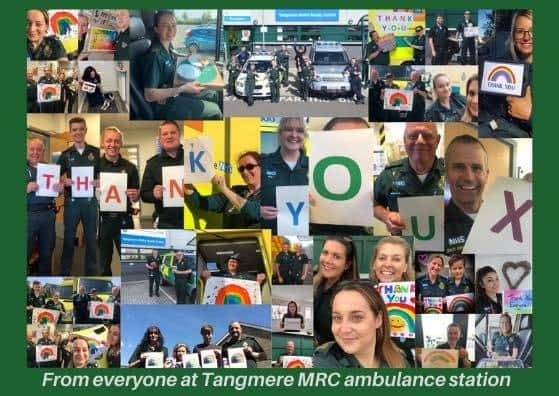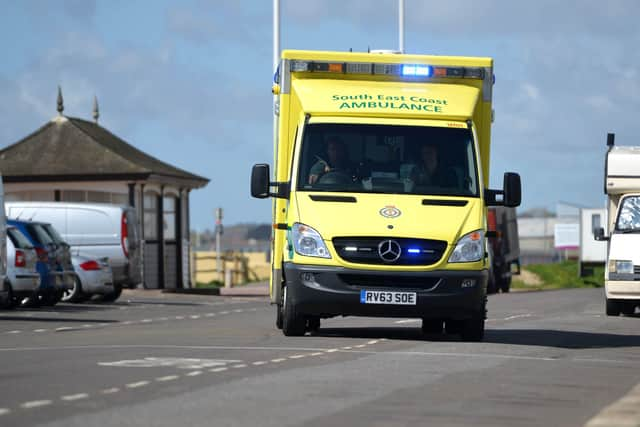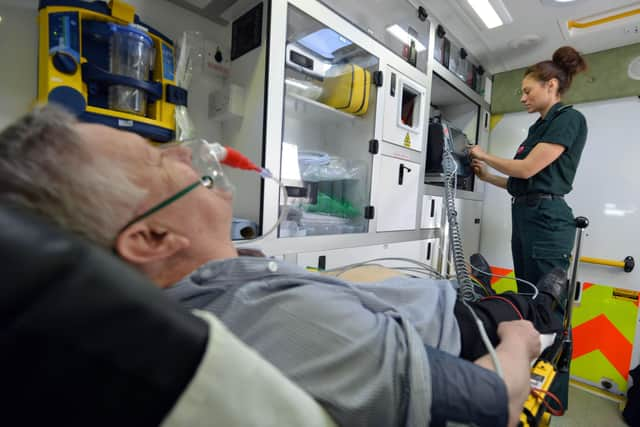High Sheriff looks at the ambulance service and its ‘heroes in headphones’
and live on Freeview channel 276
The ambulance service has been described as the glue that holds the NHS together and, as such, it has had to adapt rapidly to the challenges of Covid-19. A task which its committed team of specialists and volunteers have managed to achieve magnificently.
West Sussex is home to a very impressive member of the NHS family, South East Coast Ambulance Service NHS Foundation Trust (SECAmb), which moved to its purpose-built headquarters in Crawley in 2017.
Advertisement
Hide AdAdvertisement
Hide AdSECAmb employs more than 4,000 staff and serves almost five million residents of the South East of England. Every year, it receives in the region of one million 999 calls, its telephone triage 111 service takes more than 1.1 million calls and its vehicles travel 15 million miles across 3,600 square miles of Sussex, Surrey, Kent and north east Hampshire. It is a very busy organisation.


Half of the 999 calls SECAmb receives are deemed category one (life-threatening) or category two (emergency) – that’s one a minute. Ensuring that the right response team gets to the right place within the right time is down to expert teams in its two Emergency Operations Centres in Crawley, West Sussex and Coxheath in Kent.
Within only a few minutes of receiving a 999 call, these highly-trained people must decide how a call should be managed, calm an often distressed caller and even instruct them how to perform CPR or deliver a baby, while dispatchers arrange the appropriate response. I’d wholeheartedly agree with the sentiment that they are the ‘heroes in headphones’.
Paramedics are now trained to a graduate level and are deployed, alongside a variety of clinical roles and specialist clinicians, in rapid response cars, ambulances or even in GP practices. Ambulance clinicians deal with some of the NHS’s most sick patients and they regularly have to perform potentially life-saving resuscitation. However, they are known for their care, good-humour and unflappability and Liam McDine, a paramedic, described his role to me as ‘the best job in the world’.
Advertisement
Hide AdAdvertisement
Hide AdBut the arrival of Covid-19 has created challenges for Liam and his colleagues. A significantly higher proportion of his patients are severely ill and, when they are in attendance, ambulance crews must always wear level two or three PPE – apparently this makes CPR very hot work.


SECAmb’s maintenance of its fleet is an obvious priority and it has now developed Make Ready centres such as at Tangmere and Gatwick where this vital role is carried out by specialist mechanics. Furthermore, before and after every shift, a dedicated team thoroughly cleans, restocks and checks the equipment on each ambulance so they are always ready at a moment’s notice.
SECAmb has become a sophisticated provider of first-line healthcare but it is developing this role further to reduce the need for patients to attend hospital – an aim many of my patients greatly appreciate. Mental health nurses, midwives, occupational therapists are now part of the SECAmb team and the service works closely with the police and fire service to share their skills.
No description of the ambulance service would be complete without mentioning the outstanding contribution of their Community First Responders during Covid-19. While some are now returning to responding to patients, the infection risk has prevented these volunteers from being able to attend emergencies in their communities. Many though have chosen to provide morale-uplifting support to the regular staff during this challenging time which has been much-appreciated.
Advertisement
Hide AdAdvertisement
Hide AdCovid-19 has had a dramatic effect on the way we use the ambulance service. Indeed the numbers of non-urgent calls to SECAmb has fallen so that it now has greater capacity to reach the most serious category one and two patients more quickly.


And, although we know that SECAmb has a vital role to ensure the NHS can meet its daunting back-log of clinical work, it will be important for the 999 emergency service to remain just that – for emergencies only.
---
A message from the Editor, Gary Shipton:
In order for us to continue to provide high quality and trusted local news, I am asking you to please purchase a copy of our newspapers.


With the coronavirus lockdown having a major impact on many of our local valued advertisers - and consequently the advertising that we receive - we are more reliant than ever on you helping us to provide you with news and information by buying a copy of our newspapers.
Advertisement
Hide AdAdvertisement
Hide AdOur journalists are highly trained and our content is independently regulated by IPSO to some of the most rigorous standards in the world. But being your eyes and ears comes at a price. So we need your support more than ever to buy our newspapers during this crisis.
Stay safe, and best wishes.